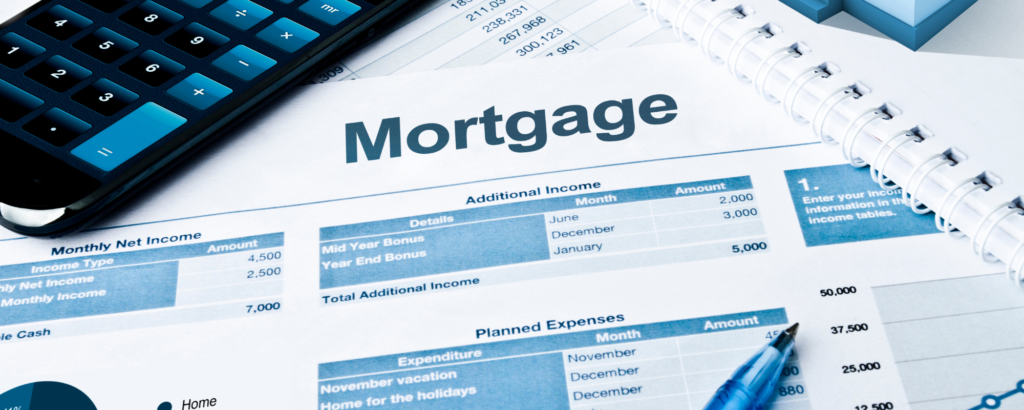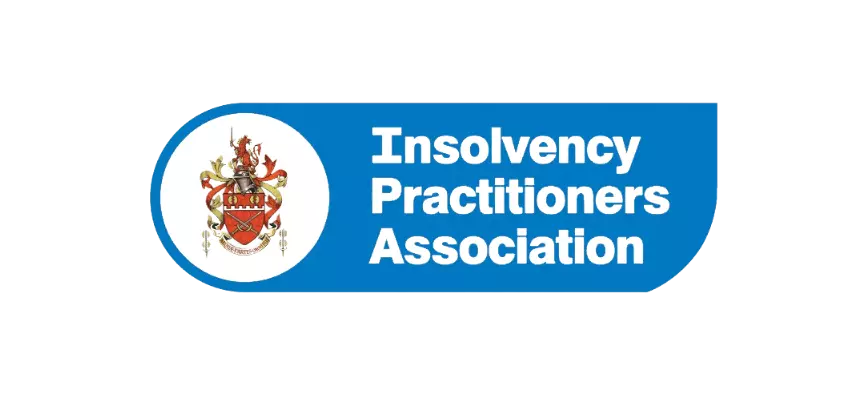If you’re a homeowner and you have been considering an IVA to deal with your debt, you’re probably wondering if it will affect your mortgage or remortgaging eligibility.
The good news is that you can often still get a mortgage or remortgage with an IVA, although there may be some restrictions.
Getting a mortgage has now evolved to offer more variety of products, that is more inclusive to people of varied credit rating. There is usually a specialist mortgage lender for even the poorest of a credit report.
Alongside high street institutions, a mortgage broker will source specialist lenders who look at the whole financial picture of a potential borrower, not just their credit report.
This means that even if you have entered an IVA, you may still be able to get a mortgage.
In this article, we’ll explain how an IVA affects getting a mortgage and whether you could still be eligible for one.
What is an IVA?
An individual voluntary arrangement (IVA) is a debt solution that can help you to repay your debts over a period of time, usually 5 years.
It’s a formal agreement between you and your creditors, which means that they’ll agree to freeze interest and charges on your debts and accept lower payments each month.
Once you’ve completed your IVA, any remaining debt will be written off.
An IVA is a good option if you’re struggling to repay your debts in full and you want to keep your home.
Can I get a mortgage with an IVA?
The short answer is yes, you can still obtain a mortgage during or after an IVA.
However like with all debt solutions, your options may be more limited and the interest rates could be higher than if you had a clean credit history.
Other credit report obstacles
It is worth noting that if you decide not to move forward with an IVA, you could still face similar credit issues when trying to mortgage or remortgage.
This is because items such as missed payments and large debts outstanding will still be listed on your credit report, which lenders will take into account when assessing your application.
As every mortgage application is different, it is entirely feasible you could find a mortgage offer that works for you and your family.
If you’re considering an IVA and you’re a homeowner you may wish to seek professional advice whilst assessing your options. An IVA mortgage is not suitable for everyone and should only be considered if you are certain it is the right solution for your circumstances.
How does an IVA affect getting a mortgage?
Although an IVA has great benefits in providing debt relief, there are some implications for homeowners and would-be homeowners alike.
However, as with all debt solutions you will be deemed a higher risk due to your credit history, so the terms of any mortgage offered may be less favourable than if you have a good credit rating.
Higher deposits may be required
When looking for a mortgage with an IVA, you may be asked for a larger deposit than if you had no debt solution in place
This is because lenders will see you as higher risk and they’ll want to minimise this by asking for a larger deposit.
The size of deposit required will depend on the lender and the type of mortgage product you’re applying for.
It’s also worth noting that your credit history, missed payments, defaults, and high levels of debt in your name all influence how lenders evaluate your risk.
Interest rates could be higher
You may be offered a higher interest rate on your mortgage if you have an IVA.
This is because lenders will see you as a higher risk and they’ll want to offset this by charging a higher rate. This is the same for an applicant who may have missed payments, has previously defaulted or has large debt outstanding.
The interest rate you’re offered will also depend on the type of mortgage product you’re applying for
You could be limited to certain types of mortgages
Some lenders will only offer certain types of mortgages to people with an IVA, such as a standard variable rate mortgage
This is because they see people with an IVA as higher risk and they want to minimise this by only offering certain products.
It’s worth noting that although you may be limited to certain types of mortgages, there are still plenty of options available and it’s important to compare different deals to find the best one for you.
Credit file will be impacted
As with any debt solution, an IVA has a negative impact on your credit score.
If you’ve entered an IVA, it’ll be evident that you’re taking responsibility for your debt and improving your credit file.
However, a poor credit file is a negative sign for a lender, when assessing your credit history for any financial difficulties you may have previously experienced.
It’s important to remember that although an IVA has a negative impact on your credit file, it doesn’t mean you won’t be able to get a mortgage.
An average high street lender may decide not to lend to you, but there are plenty of specialist lenders who specialise in adverse credit mortgages.
A specialist mortgage broker may be able to save you time by assessing the market and finding you a suitable mortgage company.
Do I have to declare an IVA with a mortgage application?
When applying for a mortgage, you will be required to disclose any debts, including your individual voluntary arrangement.
This is because lenders need to know your financial commitments as part of the eligibility process for IVA mortgages.
It’s important to be honest when disclosing your debts, as any false information could lead to your mortgage application being declined.
Do I have to disclose a completed IVA on my mortgage application?
If you have completed your IVA and it’s no longer active, you’re not legally obliged to disclose it on your mortgage application.
However, it’s always best to be 100% transparent with lenders when applying for a mortgage. This is because any information you withhold could lead to your mortgage application being declined.
It’s also worth noting that some lenders may still request information about your completed IVA as part of their regular credit checks.
So, although you’re not obliged to disclose a completed IVA, it’s always best to be prepared in case your lender asks for this information.
How do I get a mortgage whilst on an IVA?
It is possible to acquire a mortgage from a mortgage lender if you’ve entered an individual voluntary agreement. However, a process must be followed under the terms of your IVA.
Speak to your insolvency practitioner
As your first port of call, you’ll need to speak to your insolvency practitioner about acquiring a mortgage on a new property.
During the duration of your IVA, insolvency practitioners have control over your financial affairs and must therefore give you permission to enter into any new financial commitments. Acquiring a new mortgage would fall under new credit agreements.
It is always recommended to discuss with the insolvency practitioners who are managing your payment plan. They will be able to assist you in assessing your financial situation and making sure that your repayments to the prospective lender do not put you into financial hardship alongside repaying your unsecured debt.
Compare mortgage deals
Once you’ve spoken to your insolvency practitioner and have been given permission to enter into a new mortgage, you can start comparing deals.
It’s important to compare as many deals as possible to find the best one for your individual circumstances.
There are specialist mortgage lenders who offer IVA mortgages, so it’s worth speaking to these lenders first. However, you should also compare deals from high street lenders to make sure a specialist lender is the the best deal possible.
Keep your insolvency practitioners fully informed
Once you’ve found a mortgage deal that’s right for you, it’s important to keep your insolvency practitioner fully informed.
Your insolvency practitioner will need to approve the mortgage and may need to renegotiate the terms of your IVA in order to accommodate the new mortgage payments.
If you’re thinking of acquiring a mortgage whilst on an IVA, it’s important to speak to your insolvency practitioner as early as possible. They will be able to advise you on the best course of action and help you find a mortgage that’s right for you.
How long until my chances of a mortgage increase after an IVA?
Once you’ve completed your IVA, your chances of getting a mortgage will increase.
You will have no debts outstanding, an improved credit score and will have demonstrated your ability to make regular repayments. All of these factors will make you a more attractive proposition to lenders and a higher prospect of mortgage approval.
The timeline for easier eligibility after an IVA can vary on several factors such as your repayments on other credit commitments, disposable income and your credit report.
Typically, you will need to wait 12-24 months after completion before your mortgage approval chances significantly increase. This is because mortgage lenders like to see a track record of good financial behaviour before they offer you a mortgage.
Can paying off an IVA early increase my mortgage chances?
If you’re looking to improve your chances of being accepted for a mortgage, you may feel paying off your individual voluntary arrangement early could be one way of doing this.
However, an early IVA settlement does not guarantee you will be accepted for a mortgage and each case is decided on its own merits.
Your credit file will still show you completed an IVA even if it was settled early. This may still be viewed negatively by some lenders, although it will show you have made an effort to clear your debts.
Can I get a joint mortgage with an IVA?
It is possible to obtain a joint mortgage whilst one applicant has an active IVA and IVA. However, it can limit your mortgage options.
If you’re looking to get a mortgage with someone else, it’s important to be aware that both applicants’ financial history and credit score will be taken into account.
This means if one applicant has an IVA, this could impact the other applicant’s chances of being accepted for the mortgage. It’s therefore important to consider both applicants’ financial history before applying for a mortgage.
A sole application from the partner who has not entered into an IVA may be more successful, although this will depend on the mortgage lender’s criteria.
Applying for a mortgage when in an IVA – Conclusion
In summary, a mortgage whilst in an IVA is possible with the right lender.
However, alongside the benefits of an IVA in improving your solution of repaying debt, debt solutions affect other aspects of your personal finances.
Seek debt advice
If you are considering entering an IVA it is important to seek debt advice to discuss all the options available to your financial circumstances. Most respected IVA companies provide free advice to help you decide on the best way forward.
They can take into account your future plans and advise accordingly. You will be able to discuss your potential plans for IVA mortgage applications or even a mortgage after an IVA.
Obtain mortgage advice
It is always important to note that debt advisors do not offer mortgage advice, and therefore we always recommend you seek mortgage advice from a regulated broker.
The mortgage market has changed significantly in the last decade, with specialist lenders available for all types of mortgage applicants.
Where it was once definitely a closed door for mortgage applications with poor credit history, there is a chance with some specialist mortgage lenders.
Speak to our debt advice team
If you wish to discuss more the advantages and disadvantages of an IVA, then speak to our debt advice team today.
Our company advises numerous people daily on the best action to take to consolidate their unsecured debts.
We are governed by the Insolvency Practitioners Association, are regulated to provide insolvency advice.
Fill in the contact form below, and one of the members of our friendly advice team will be in touch to discuss your queries.







